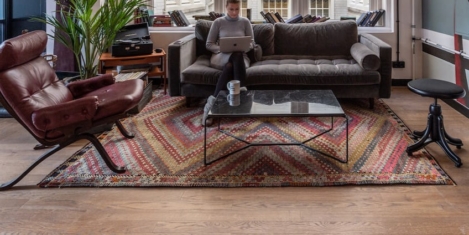April 2, 2024
Virtual meetings can boost wellbeing and performance
 Virtual meetings – often derided as impersonal and prone to technical glitches – can improve employee wellbeing and performance, a new study led by a Trinity Business School researcher has found. The research, conducted alongside Karin S. Moser (UniDistance Suisse, University of Queensland), Stefan Diestel (University of Wuppertal) and Isaac Alshaikh (South East Technological University Waterford), conducted during the ongoing shift to hybrid work environments and just published in the Journal of Vocational Behavior, concludes that virtual meetings, a staple of the COVID-19 pandemic, are not just a necessity but can also be beneficial. (more…)
Virtual meetings – often derided as impersonal and prone to technical glitches – can improve employee wellbeing and performance, a new study led by a Trinity Business School researcher has found. The research, conducted alongside Karin S. Moser (UniDistance Suisse, University of Queensland), Stefan Diestel (University of Wuppertal) and Isaac Alshaikh (South East Technological University Waterford), conducted during the ongoing shift to hybrid work environments and just published in the Journal of Vocational Behavior, concludes that virtual meetings, a staple of the COVID-19 pandemic, are not just a necessity but can also be beneficial. (more…)









 A new poll claims that over one quarter (26 percent) of employees in the UK do not trust their CEO to be open and honest, while 24 percent do not trust their senior leadership to do the same. According to the survey of 2,000 employees in the UK from Personio, transparency and employer-employee communication are pivotal to a positive employee experience and trust in the workplace. The research suggests that feeling unheard by leadership could be fuelling employees’ distrust. Over a quarter (28 percent) of employees surveyed say that they are not given a chance to share feedback to leadership on their experiences. Meanwhile, less than half (46 percent) of employees feel that leadership in their organisation actually listens and acts on any feedback when given from staff.
A new poll claims that over one quarter (26 percent) of employees in the UK do not trust their CEO to be open and honest, while 24 percent do not trust their senior leadership to do the same. According to the survey of 2,000 employees in the UK from Personio, transparency and employer-employee communication are pivotal to a positive employee experience and trust in the workplace. The research suggests that feeling unheard by leadership could be fuelling employees’ distrust. Over a quarter (28 percent) of employees surveyed say that they are not given a chance to share feedback to leadership on their experiences. Meanwhile, less than half (46 percent) of employees feel that leadership in their organisation actually listens and acts on any feedback when given from staff. 























March 7, 2024
There never was a new normal
by Nick Gold • Comment, Flexible working, Wellbeing